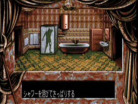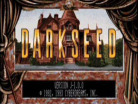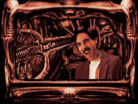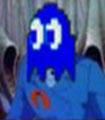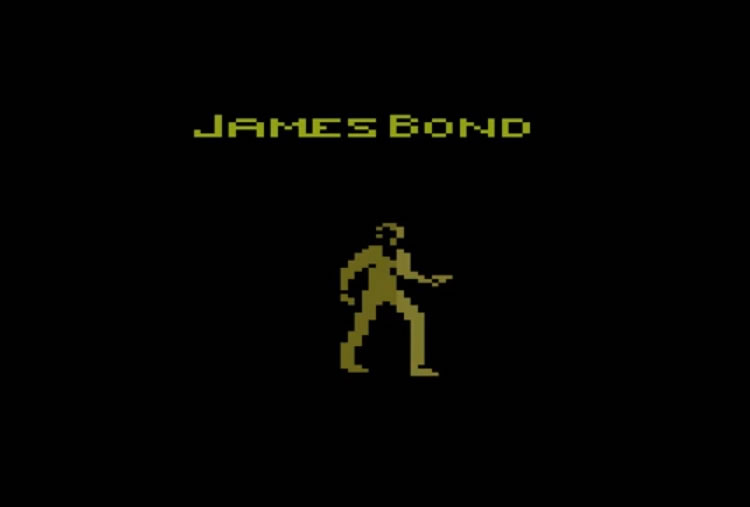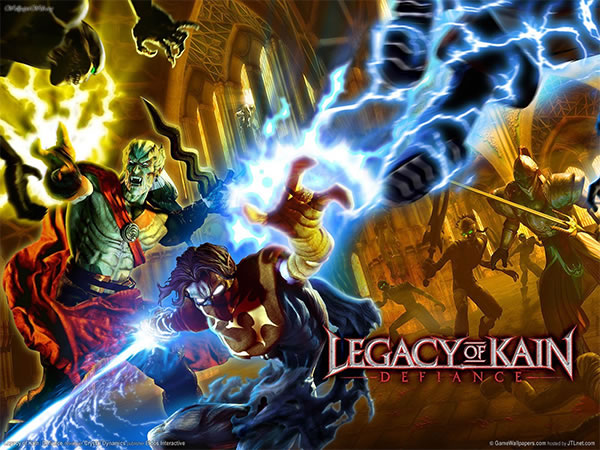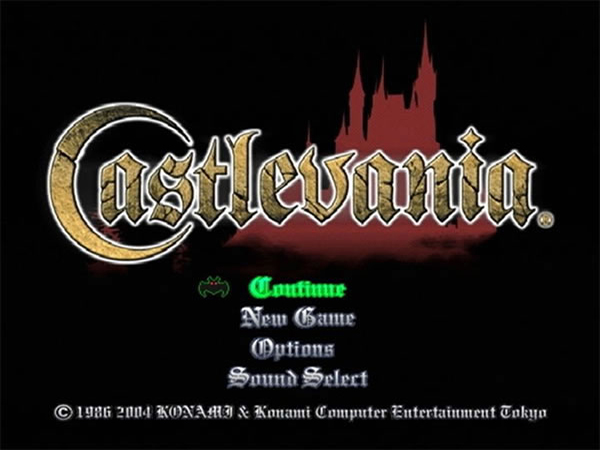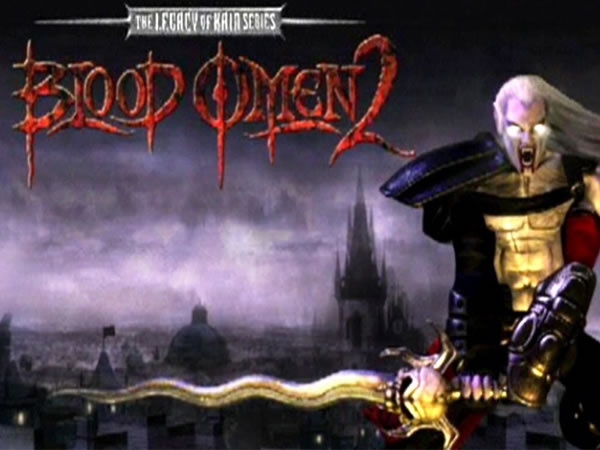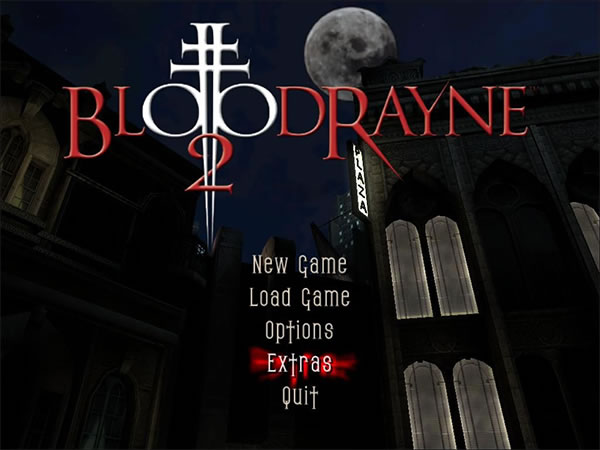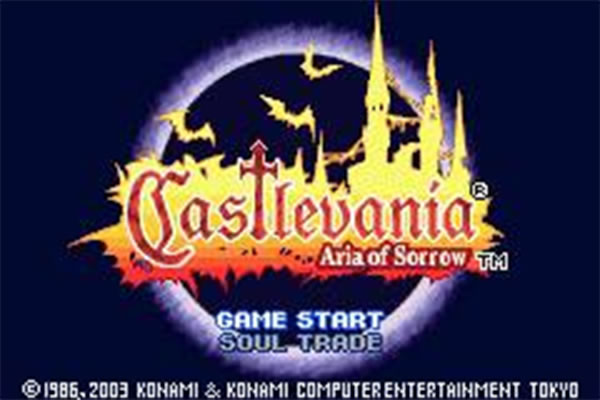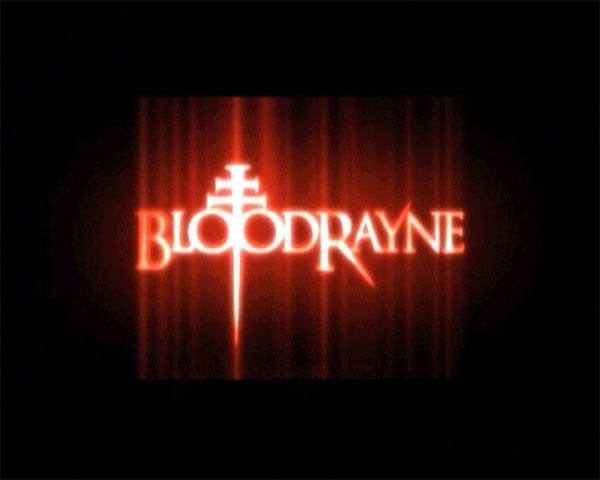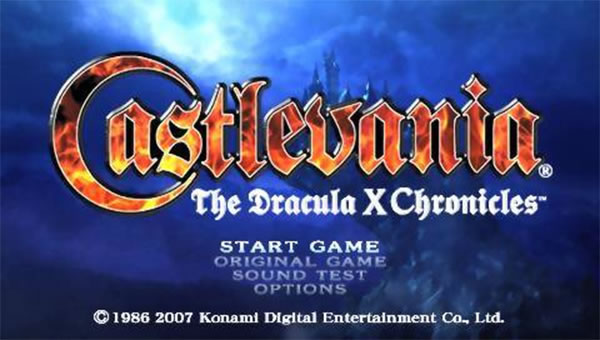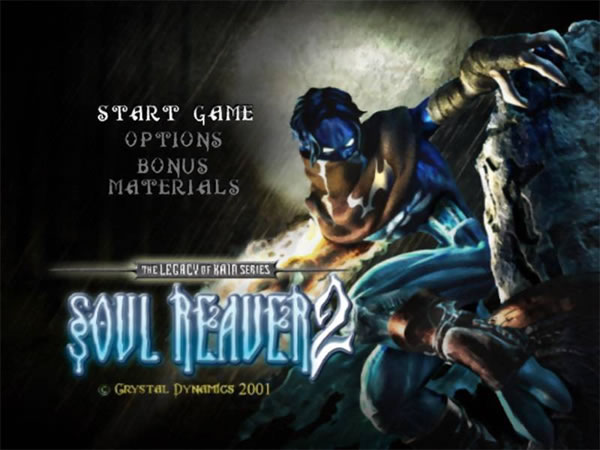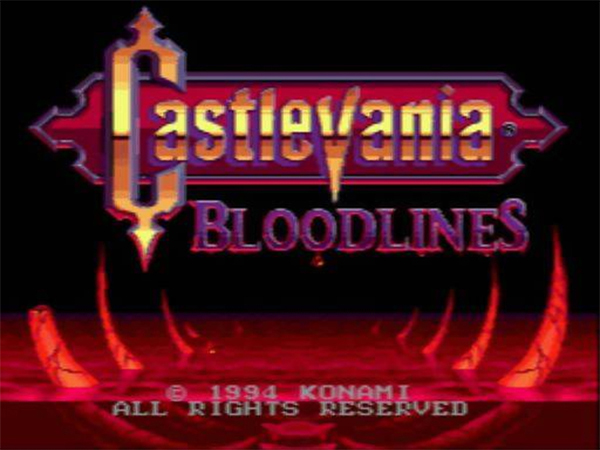- CLASSIC MAGAZINES
- REVIEW CREW
A show recapping what critics thought back
when classic games first came out! - NEXT GENERATION'S BEST & WORST
From the worst 1-star reviews to the best
5-stars can offer, this is Next Generation! - NINTENDO POWER (ARCHIVE)
Experience a variety of shows looking at the
often baffling history of Nintendo Power! - MAGAZINE RETROSPECTIVE
We're looking at the absolutely true history of
some of the most iconic game magazines ever! - SUPER PLAY'S TOP 600
The longest and most ambitious Super NES
countdown on the internet! - THEY SAID WHAT?
Debunking predictions and gossip found
in classic video game magazines! - NEXT GENERATION UNCOVERED
Cyril is back in this spin-off series, featuring the
cover critic review the art of Next Generation! - HARDCORE GAMER MAGAZING (PDF ISSUES)
Download all 36 issues of Hardcore Gamer
Magazine and relive the fun in PDF form!
- REVIEW CREW
- ELECTRONIC GAMING MONTHLY
- ELECTRONIC GAMING MONTHLY RANKS
From Mario to Sonic to Street Fighter, EGM
ranks classic game franchises and consoles! - ELECTRONIC GAMING MONTHLY BEST & WORST
Counting down EGM’s best and worst reviews
going year by year, from 1989 – 2009! - ELECTRONIC GAMING BEST & WORST AWARDS
11-part video series chronicling the ups and
downs of EGM’s Best & Worst Awards!
- ELECTRONIC GAMING MONTHLY RANKS
- GAME HISTORY
- GAME OVER: STORY BREAKDOWNS
Long-running series breaking down game
stories and analyzing their endings! - A BRIEF HISTORY OF GAMING w/ [NAME HERE]
Real history presented in a fun and pithy
format from a variety of game historians! - THE BLACK SHEEP
A series looking back at the black sheep
entries in popular game franchises! - INSTANT EXPERT
Everything you could possibly want to know
about a wide variety of gaming topics! - FREEZE FRAME
When something familiar happens in the games
industry, we're there to take a picture! - I'VE GOT YOUR NUMBER
Learn real video game history through a series
of number-themed episodes, starting at zero! - GREAT MOMENTS IN BAD ACTING
A joyous celebration of some of gaming's
absolute worst voice acting!
- GAME OVER: STORY BREAKDOWNS
- POPULAR SHOWS
- DG NEWS w/ LORNE RISELEY
Newsman Lorne Riseley hosts a regular
series looking at the hottest gaming news! - REVIEW REWIND
Cyril replays a game he reviewed 10+ years
ago to see if he got it right or wrong! - ON-RUNNING FEUDS
Defunct Games' longest-running show, with
editorials, observations and other fun oddities! - DEFUNCT GAMES QUIZ (ARCHIVE)
From online quizzes to game shows, we're
putting your video game knowledge to the test!- QUIZ: ONLINE PASS
Take a weekly quiz to see how well you know
the news and current gaming events! - QUIZ: KNOW THE GAME
One-on-one quiz show where contestants
find out if they actually know classic games! - QUIZ: THE LEADERBOARD
Can you guess the game based on the classic
review? Find out with The Leaderboard!
- QUIZ: ONLINE PASS
- DEFUNCT GAMES VS.
Cyril and the Defunct Games staff isn't afraid
to choose their favorite games and more! - CYRIL READS WORLDS OF POWER
Defunct Games recreates classic game
novelizations through the audio book format!
- DG NEWS w/ LORNE RISELEY
- COMEDY
- GAME EXPECTANCY
How long will your favorite hero live? We crunch
the numbers in this series about dying! - VIDEO GAME ADVICE
Famous game characters answer real personal
advice questions with a humorous slant! - FAKE GAMES: GUERILLA SCRAPBOOK
A long-running series about fake games and
the people who love them (covers included)! - WORST GAME EVER
A contest that attempts to create the worst
video game ever made, complete with covers! - LEVEL 1 STORIES
Literature based on the first stages of some
of your favorite classic video games! - THE COVER CRITIC
One of Defunct Games' earliest shows, Cover
Critic digs up some of the worst box art ever! - COMMERCIAL BREAK
Take a trip through some of the best and
worst video game advertisements of all time! - COMIC BOOK MODS
You've never seen comics like this before.
A curious mix of rewritten video game comics!
- GAME EXPECTANCY
- SERIES ARCHIVE
- NINTENDO SWITCH ONLINE ARCHIVE
A regularly-updated list of every Nintendo
Switch Online release, plus links to review! - PLAYSTATION PLUS CLASSIC ARCHIVE
A comprehensive list of every PlayStation
Plus classic release, including links! - RETRO-BIT PUBLISHING ARCHIVE
A regularly-updated list of every Retro-Bit
game released! - REVIEW MARATHONS w/ ADAM WALLACE
Join critic Adam Wallace as he takes us on a
classic review marathon with different themes!- DEFUNCT GAMES GOLF CLUB
Adam Wallace takes to the links to slice his way
through 72 classic golf game reviews! - 007 IN PIXELS
Adam Wallace takes on the world's greatest spy
as he reviews 15 weeks of James Bond games! - A SALUTE TO VAMPIRES
Adam Wallace is sinking his teeth into a series
covering Castlevania, BloodRayne and more! - CAPCOM'S CURSE
Adam Wallace is celebrating 13 days of Halloween
with a line-up of Capcom's scariest games! - THE FALL OF SUPERMAN
Adam Wallace is a man of steel for playing
some of the absolute worst Superman games! - THE 31 GAMES OF HALLOWEEN
Adam Wallace spends every day of October afraid
as he reviews some of the scariest games ever! - 12 WEEKS OF STAR TREK
Adam Wallace boldly goes where no critic has
gone before in this Star Trek marathon!
- DEFUNCT GAMES GOLF CLUB
- DAYS OF CHRISTMAS (ARCHIVE)
Annual holiday series with themed-episodes
that date all the way back to 2001!- 2015: 30 Ridiculous Retro Rumors
- 2014: 29 Magazines of Christmas
- 2013: 29 Questionable Power-Ups of Christmas
- 2012: 34 Theme Songs of Christmas
- 2011: 32 Game Endings of Christmas
- 2010: 31 Bonus Levels of Christmas
- 2009: 30 Genres of Christmas
- 2008: 29 Controls of Christmas
- 2007: 34 Cliches of Christmas
- 2006: 33 Consoles of Christmas
- 2005: 32 Articles of Christmas
- 2004: 31 Websites of Christmas
- 2003: 29 Issues of Christmas
- 2002: 28 Years of Christmas
- 2001: 33 Days of Christmas
- NINTENDO SWITCH ONLINE ARCHIVE
- REVIEW ARCHIVE
- FULL ARCHIVE
Darkseed
You hear stories all the time of a man showing up at a hospital complaining of headaches before doctors notice a bullet lodged in his brain. In fact, people can live years with foreign objects in their heads. Recently a woman from China had a World War II bullet extricated from her skull and another in Germany had a pencil removed fifty-five years after a childhood accident.
So, with these incidents in mind, it doesn't seem unusual that Mike Dawson would wake up in his new home complaining of headaches after having his cranium impregnated with an alien embryo. The only trouble is that he cannot wait very long to remove it. In three days, it will hatch, leaving Mr. Dawson's head an empty husky.
Darkseed, starring programmer Mike Dawson, sits prominently as one of the most influential and noteworthy point-and-click adventures in the hallowed halls of gaming. It was recently featured on one website as among of the top ten scariest games of all time, even edging out Eternal Darkness and Clocktower. While it does have moments of surrealistic terror, Darkseed never really sets the players on edge. There are no startling moments, no creatures breaking through glass to wake you from silence, no creepy little girls leading you into abysmal rabbit holes. The horror here stems mostly from the atmosphere with its muted colors and its use of both gothic and biomechanical motifs. Images of the organic seamlessly melt into the inorganic and punctuate the world of Darkseed. The effectiveness of these images (including one of a baby transforming into a biomechanical pump) can be credited to the influence of conceptual artist H.R. Giger who lent his name to Cyberdream's production (though some reports say he did so rather reluctantly). It is nice to see Giger's name attached directly to a game since his inimitable alien design has been copied in titles like Contra, R-Type, Alien Crush, and the original Alien Syndrome. Unfortunately, Giger's influence may be the best part of Darkseed, an adventure fraught with problems.
Darkseed differs from point-and-click games in that the player has privileged information that the controlled character does not. We know the cause of Mike's headaches, but he doesn't. If we want him to commit to an action, he won't do so unless he has proper cause. For example, if we know there is a secret passage in the study, Mike won't open it unless he sees a blueprint of the house beforehand. While this caveat of gameplay may make the story unfold more realistically, it makes replaying it a chore. And since the game suffers from the "resurrection fallacy" (gameplay that requires the player to fail several times before winning), a player may feel like he's running errands rather than playing a fun game.
The most voiced complaint about Darkseed is that it is largely a game of "pixel-hunting"-dragging the cursor around the screen in the hopes that your arrow detects an object. Since the colors of the game are muted and sometimes monochromatic, items do not present themselves easily. For example, a three-pixel-wide hairpin lies camouflaged on a library floor, and if you don't happen to "see" it, the game is unsolvable. This must have been a moneymaking scheme to have players order the hint-book directly from Cyberdreams, but the poor Japanese Saturn players weren't even provided with a hint-book advertisement in the instruction manual. Remember, this game was released before the age of online walkthroughs, so as aggravating as it is today, it doesn't compare to the frustration of those who bought it at full price in the 1990s.
Of all the ports of Darkseed, the Sega Saturn version is particularly disappointing because it does nothing to improve upon the problems present in its 1992 Amiga and PC releases. With three years hindsight, one would think the programmers would have tightened their game, but the Saturn rendition is just a direct port of the original software. The only notable change is that the Saturn allows the game to run faster. For every four seconds of real time, one minute of game time would pass in the Amiga version. The Saturn doubles this, making every two seconds an in-game minute. The pulsating music also plays double-time and thereby creates an anxiety that doesn't belong in a point-and-click adventure. This type of game should be contemplative and somewhat relaxed to allow a player time to solve the puzzles with well-measured reason.
Time is essential in the game. Rather than using a map, a player should keep an appointment book to mark when the doorbell and phone ring or when to meet up with someone outside your house. Like The Legend of Zelda: Majora's Mask, you have three days to save the world while being punctual with your appointments. That's where the similarities end however. You may actually just find yourself waiting by the phone just to record when it rings. It feels like when you wait for that girl you met at the bar to call, only lonelier and hollower.
For those concerned about playing this game with Japanese text, you will be glad to know that the voiceovers remain in English, but the music is sometimes so loud that it is hard to hear what Mike is saying. At times, the music blares so stridently that you may find yourself taking aspirin along with Mike each morning. This is really a shame since CD technology allows for dynamic and engaging soundtracks, but this copy takes no advantage of that fact.
Perhaps its unfair to judge games anachronistically, but Darkseed hasn't weathered the passage of time all that well, while other point-and-click adventures still thrive in our memories. In one scene, Mike sees a tombstone that reads the name "G. Threepwood," the hero of LucasArt's Monkey Island series. Ironically, Threepwood's legacy is alive and well today, while Mike Dawson's is fading in annals of now-defunct games. Hopefully, some developer will resurrect this franchise, give it a haircut, and make it viable for modern audiences.
NOTE: Darkseed II was also released for the Japanese Saturn in 1995, but since the voiceovers and text are both in Japanese, it is largely unplayable without a reasonable handle on the language.
So, with these incidents in mind, it doesn't seem unusual that Mike Dawson would wake up in his new home complaining of headaches after having his cranium impregnated with an alien embryo. The only trouble is that he cannot wait very long to remove it. In three days, it will hatch, leaving Mr. Dawson's head an empty husky.
Darkseed, starring programmer Mike Dawson, sits prominently as one of the most influential and noteworthy point-and-click adventures in the hallowed halls of gaming. It was recently featured on one website as among of the top ten scariest games of all time, even edging out Eternal Darkness and Clocktower. While it does have moments of surrealistic terror, Darkseed never really sets the players on edge. There are no startling moments, no creatures breaking through glass to wake you from silence, no creepy little girls leading you into abysmal rabbit holes. The horror here stems mostly from the atmosphere with its muted colors and its use of both gothic and biomechanical motifs. Images of the organic seamlessly melt into the inorganic and punctuate the world of Darkseed. The effectiveness of these images (including one of a baby transforming into a biomechanical pump) can be credited to the influence of conceptual artist H.R. Giger who lent his name to Cyberdream's production (though some reports say he did so rather reluctantly). It is nice to see Giger's name attached directly to a game since his inimitable alien design has been copied in titles like Contra, R-Type, Alien Crush, and the original Alien Syndrome. Unfortunately, Giger's influence may be the best part of Darkseed, an adventure fraught with problems.
Darkseed differs from point-and-click games in that the player has privileged information that the controlled character does not. We know the cause of Mike's headaches, but he doesn't. If we want him to commit to an action, he won't do so unless he has proper cause. For example, if we know there is a secret passage in the study, Mike won't open it unless he sees a blueprint of the house beforehand. While this caveat of gameplay may make the story unfold more realistically, it makes replaying it a chore. And since the game suffers from the "resurrection fallacy" (gameplay that requires the player to fail several times before winning), a player may feel like he's running errands rather than playing a fun game.
The most voiced complaint about Darkseed is that it is largely a game of "pixel-hunting"-dragging the cursor around the screen in the hopes that your arrow detects an object. Since the colors of the game are muted and sometimes monochromatic, items do not present themselves easily. For example, a three-pixel-wide hairpin lies camouflaged on a library floor, and if you don't happen to "see" it, the game is unsolvable. This must have been a moneymaking scheme to have players order the hint-book directly from Cyberdreams, but the poor Japanese Saturn players weren't even provided with a hint-book advertisement in the instruction manual. Remember, this game was released before the age of online walkthroughs, so as aggravating as it is today, it doesn't compare to the frustration of those who bought it at full price in the 1990s.
Of all the ports of Darkseed, the Sega Saturn version is particularly disappointing because it does nothing to improve upon the problems present in its 1992 Amiga and PC releases. With three years hindsight, one would think the programmers would have tightened their game, but the Saturn rendition is just a direct port of the original software. The only notable change is that the Saturn allows the game to run faster. For every four seconds of real time, one minute of game time would pass in the Amiga version. The Saturn doubles this, making every two seconds an in-game minute. The pulsating music also plays double-time and thereby creates an anxiety that doesn't belong in a point-and-click adventure. This type of game should be contemplative and somewhat relaxed to allow a player time to solve the puzzles with well-measured reason.
Time is essential in the game. Rather than using a map, a player should keep an appointment book to mark when the doorbell and phone ring or when to meet up with someone outside your house. Like The Legend of Zelda: Majora's Mask, you have three days to save the world while being punctual with your appointments. That's where the similarities end however. You may actually just find yourself waiting by the phone just to record when it rings. It feels like when you wait for that girl you met at the bar to call, only lonelier and hollower.
For those concerned about playing this game with Japanese text, you will be glad to know that the voiceovers remain in English, but the music is sometimes so loud that it is hard to hear what Mike is saying. At times, the music blares so stridently that you may find yourself taking aspirin along with Mike each morning. This is really a shame since CD technology allows for dynamic and engaging soundtracks, but this copy takes no advantage of that fact.
Perhaps its unfair to judge games anachronistically, but Darkseed hasn't weathered the passage of time all that well, while other point-and-click adventures still thrive in our memories. In one scene, Mike sees a tombstone that reads the name "G. Threepwood," the hero of LucasArt's Monkey Island series. Ironically, Threepwood's legacy is alive and well today, while Mike Dawson's is fading in annals of now-defunct games. Hopefully, some developer will resurrect this franchise, give it a haircut, and make it viable for modern audiences.
NOTE: Darkseed II was also released for the Japanese Saturn in 1995, but since the voiceovers and text are both in Japanese, it is largely unplayable without a reasonable handle on the language.
HOME |
CONTACT |
NOW HIRING |
WHAT IS DEFUNCT GAMES? |
NINTENDO SWITCH ONLINE |
RETRO-BIT PUBLISHING
Retro-Bit |
Switch Planet |
The Halcyon Show |
Same Name, Different Game |
Dragnix |
Press the Buttons
Game Zone Online | Hardcore Gamer | The Dreamcast Junkyard | Video Game Blogger
Dr Strife | Games For Lunch | Mondo Cool Cast | Boxed Pixels | Sega CD Universe | Gaming Trend
Game Zone Online | Hardcore Gamer | The Dreamcast Junkyard | Video Game Blogger
Dr Strife | Games For Lunch | Mondo Cool Cast | Boxed Pixels | Sega CD Universe | Gaming Trend
Copyright © 2001-2025 Defunct Games
All rights reserved. All trademarks are properties of their respective owners.
All rights reserved. All trademarks are properties of their respective owners.






